Wednesday, October 7, 2009
AN INTERVIEW : Louise Robinson - Sleepless in the Sahara
Q – You returned to school as an adult learner and became an RN when you were 45. Why did you choose nursing? What are some of the types of nursing you have done?
Louise: I think nursing chose me. I had made a good living in Interior Design (my other degree), retired at the age of 36 and moved to Hawaii. After two years of lying on the beach and attracting melanoma, I became bored. I went to a local hospital to volunteer and was asked to help in the Emergency Room. That was it. I volunteered there for about a year, got brave and went to Nurses Aide school. I then moved to New Mexico and went to LPN school. Moved back to California, got my RN Degree. Subsequently, I have worked in almost every aspect of nursing; medical, surgical, ortho, trauma (my favorite), maternity (not my favorite), etc.
Q – Speak to your journey of becoming a Peace Corp Volunteer. Was this a life-long goal? What was the hardest part for you? What did you enjoy this most?
Louise:I have wanted to join the Peace Corps since it was started in 1961. However, I was working and raising a child and that dream would have to wait. After I got my RN degree, I had to work in a hospital for a year before Peace Corps would accept me. As soon as that year was over, off I went. The hard part of this adventure was not being around my grandchildren. The whole adventure was a true learning experience. I have always loved traveling and learning about people and their customs.
Q –You worked in Operation Desert Care in Kuwait after the first Gulf War working through the International Red Cross. Was this your first international relief effort involvement after the Peace Corps? What is your best memory of this experience?
Louise: Operation Desert Care was my first International Red Cross experience. I have been on many national and local disasters, cherishing the experiences. My best memory of Operation Desert Care was the people I met. I carry their faces in my heart and hope they are safe and well.
Q - Throughout your story, Sleepless in the Sahara, you demonstrated an unflappable sense of humor. Do you think that you used humor as a positive coping mechanism to get you through this difficult time? What other sorts defensive mechanism did you notice volunteers using?
Louise: Sometimes humor is the only thing that gets you through a difficult time. Not always just then, but also later, when you have time to think about the situation. Most of the volunteers had their own ways of coping. Some would lose themselves in their work, some would read or watch TV or videos (when there was electricity), or just sit around and talk. Talking to each other was our best defense against frustration or loneliness. And the other volunteers' successes were our triumphs, too.
Q – Have you had other stories previously published? Can we expect more stories from your adventures in the desert and other parts of the world in the future?
Louise: I have had other stories, essays, and poems published. Some are about my life, some about other people or animals or situations. I am currently working on the full length book about my adventures in Kuwait. I am also working on the book about my time in the Peace Corps. I am also working. and doing housework, and tending to the diva dog, and the house repairs, the garden, the car, etc. etc. etc. I am woman.
Louise: I think nursing chose me. I had made a good living in Interior Design (my other degree), retired at the age of 36 and moved to Hawaii. After two years of lying on the beach and attracting melanoma, I became bored. I went to a local hospital to volunteer and was asked to help in the Emergency Room. That was it. I volunteered there for about a year, got brave and went to Nurses Aide school. I then moved to New Mexico and went to LPN school. Moved back to California, got my RN Degree. Subsequently, I have worked in almost every aspect of nursing; medical, surgical, ortho, trauma (my favorite), maternity (not my favorite), etc.
Q – Speak to your journey of becoming a Peace Corp Volunteer. Was this a life-long goal? What was the hardest part for you? What did you enjoy this most?
Louise:I have wanted to join the Peace Corps since it was started in 1961. However, I was working and raising a child and that dream would have to wait. After I got my RN degree, I had to work in a hospital for a year before Peace Corps would accept me. As soon as that year was over, off I went. The hard part of this adventure was not being around my grandchildren. The whole adventure was a true learning experience. I have always loved traveling and learning about people and their customs.
Q –You worked in Operation Desert Care in Kuwait after the first Gulf War working through the International Red Cross. Was this your first international relief effort involvement after the Peace Corps? What is your best memory of this experience?
Louise: Operation Desert Care was my first International Red Cross experience. I have been on many national and local disasters, cherishing the experiences. My best memory of Operation Desert Care was the people I met. I carry their faces in my heart and hope they are safe and well.
Q - Throughout your story, Sleepless in the Sahara, you demonstrated an unflappable sense of humor. Do you think that you used humor as a positive coping mechanism to get you through this difficult time? What other sorts defensive mechanism did you notice volunteers using?
Louise: Sometimes humor is the only thing that gets you through a difficult time. Not always just then, but also later, when you have time to think about the situation. Most of the volunteers had their own ways of coping. Some would lose themselves in their work, some would read or watch TV or videos (when there was electricity), or just sit around and talk. Talking to each other was our best defense against frustration or loneliness. And the other volunteers' successes were our triumphs, too.
Q – Have you had other stories previously published? Can we expect more stories from your adventures in the desert and other parts of the world in the future?
Louise: I have had other stories, essays, and poems published. Some are about my life, some about other people or animals or situations. I am currently working on the full length book about my adventures in Kuwait. I am also working on the book about my time in the Peace Corps. I am also working. and doing housework, and tending to the diva dog, and the house repairs, the garden, the car, etc. etc. etc. I am woman.
Subscribe to:
Post Comments (Atom)
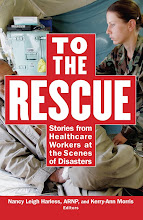
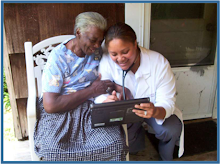









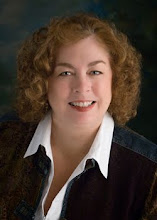

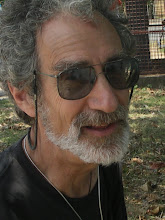
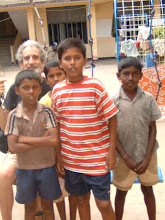


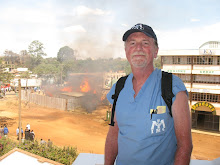


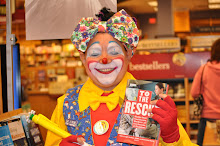



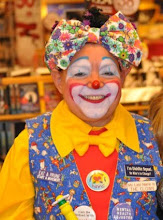




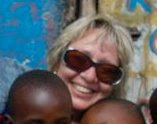


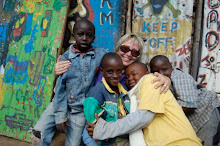






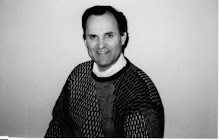

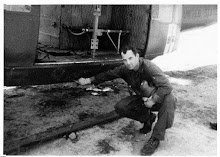




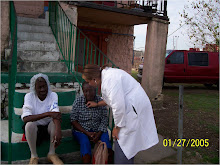
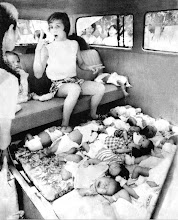

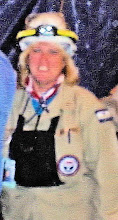



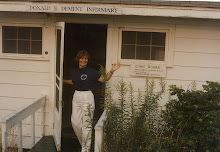




No comments:
Post a Comment